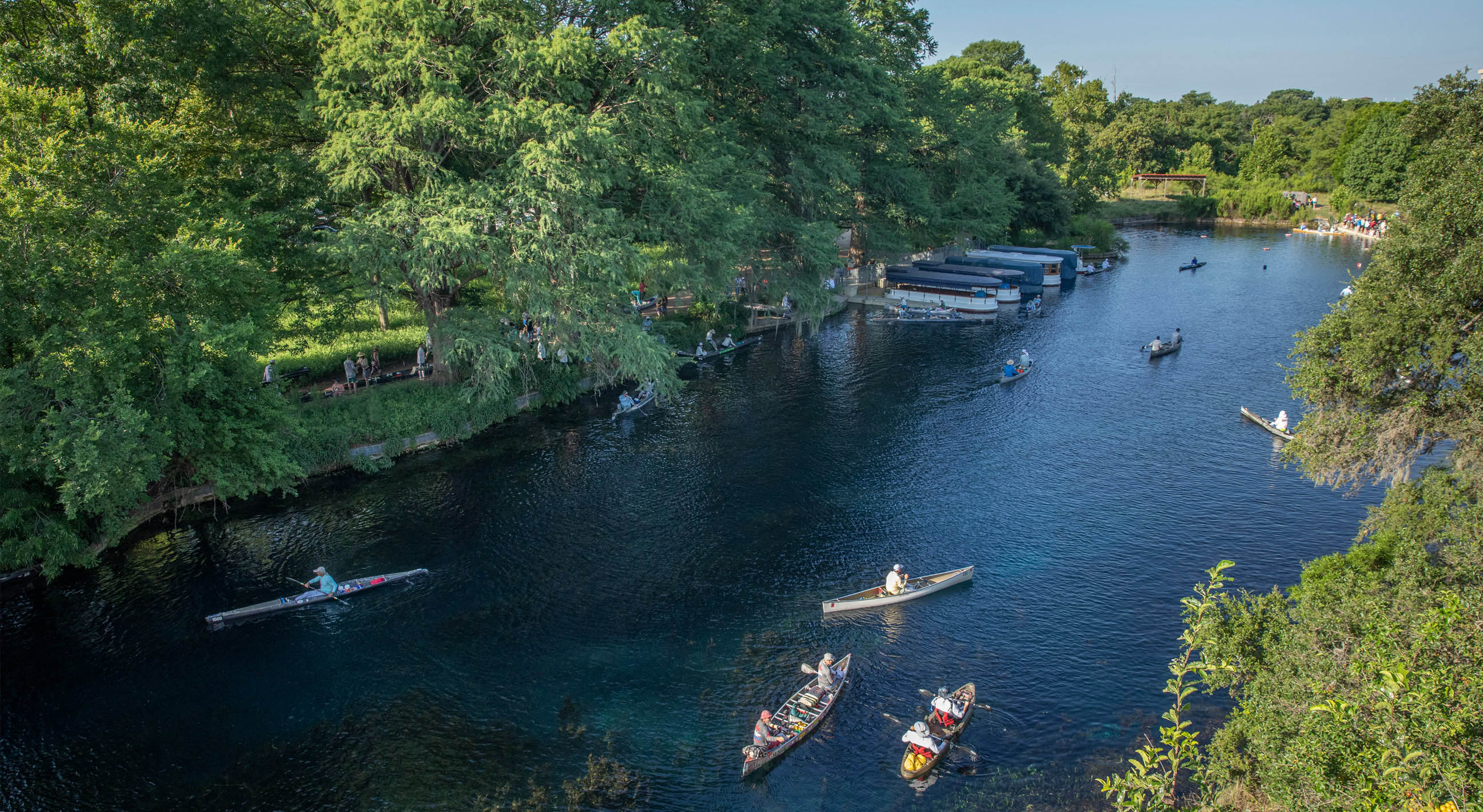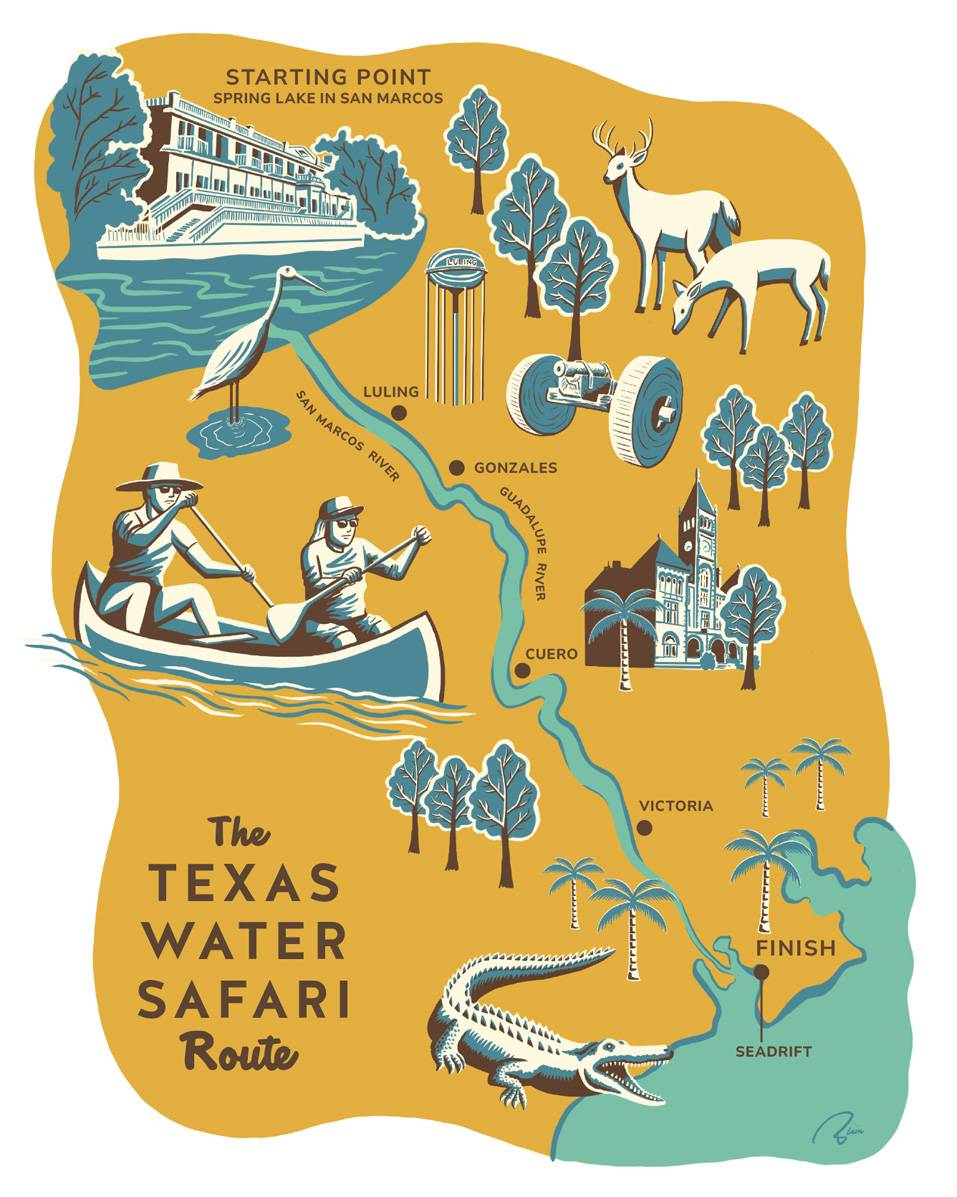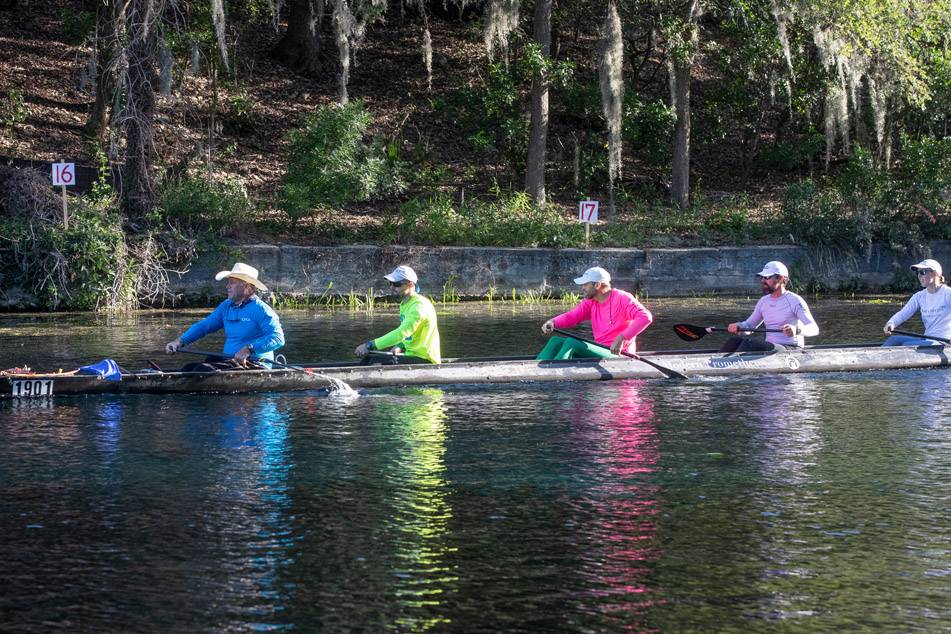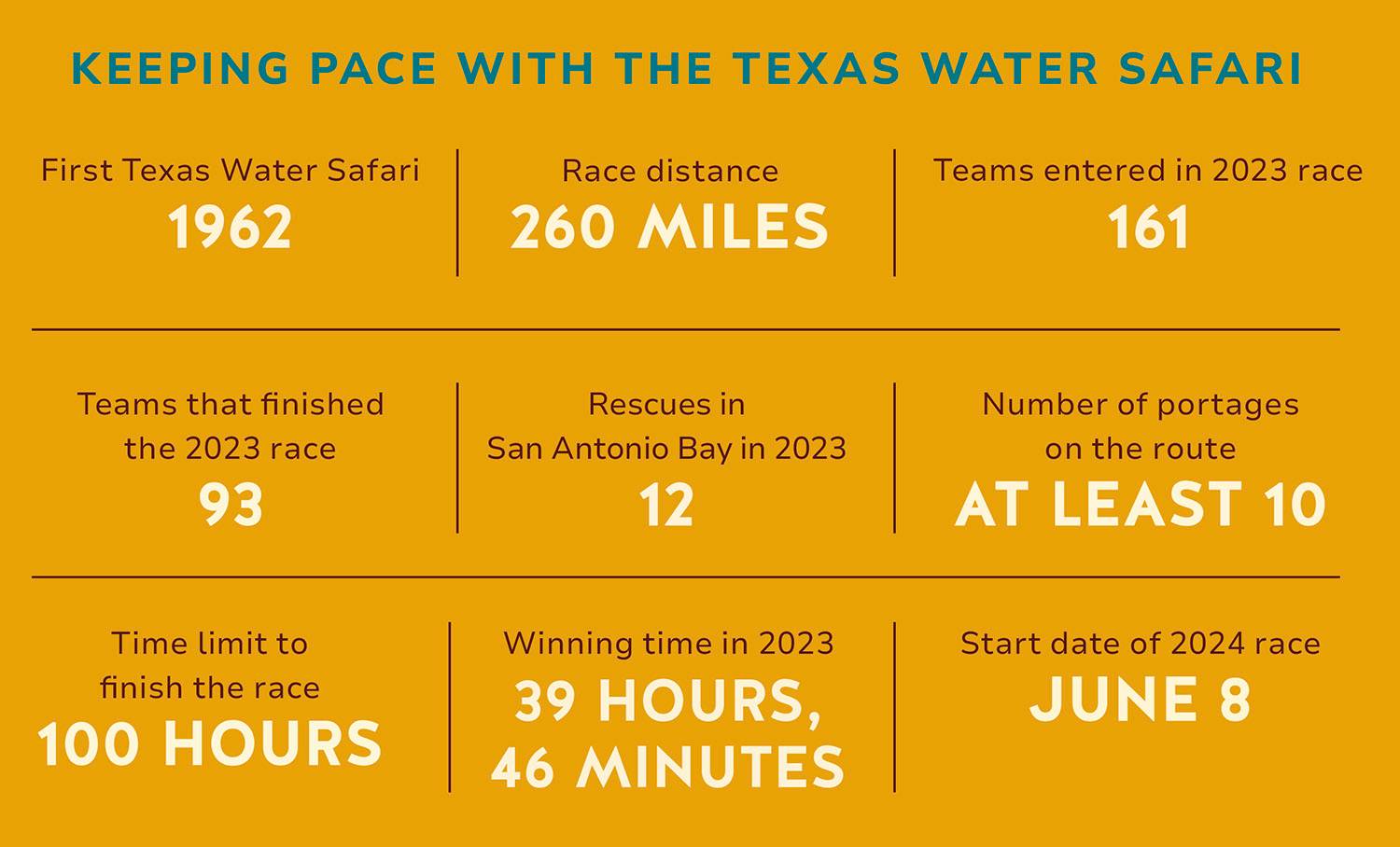Paddling Through the Pain
The Texas Water Safari challenges canoeists on a 260-mile river race from San Marcos to the coast
By Matt Joyce

Texas State alum Kaari Gerber felt more than relief when she paddled her aluminum canoe ashore in the coastal village of Seadrift last June, finishing a 94-hour journey from San Marcos. By completing the Texas Water Safari after coming up short the prior summer, Gerber put a bow on two long years of planning, training, and intense effort.
“I couldn’t imagine a second year without finishing,” says Gerber, who shared the accomplishment with her teammate, Dusty Kahl. “I know how easy it is to not finish, so it definitely felt like we put the hard work in, and we did it. It’s an unmatchable feeling to cross that finish line."
On June 8, more than 150 teams will ready their canoes in Spring Lake on the TXST campus for the 61st running of the Texas Water Safari. But this is no casual float downstream. Known as the “world’s toughest canoe race,” the Water Safari travels 260 miles down the San Marcos and Guadalupe rivers, across San Antonio Bay, and finally to Seadrift.
Along the river, the paddlers navigate challenges ranging from rapids to logjams, muddy portages, stifling heat, sleep deprivation, an occasional alligator or snake, and the choppy waters and headwinds of the bay. If they don’t complete the race in 100 hours or less, they don’t earn the coveted finisher’s patch.
Gerber, a San Marcos native, raced her first Water Safari in 2022. Her two-woman team, the Witches of the 666 (a nod to the local 78666 zip code), was on track until they got lost in a maze of logjams in the darkness of night. They were only about 15 miles from the finish line when they had to call for help and be guided out of the swampy morass near the Guadalupe’s confluence with the bay.
“The experience consumed me, and I would have dreams about it, and it just very much felt like I had to try it again,” Gerber says. A year later, she was back at Spring Lake, ready to give it another try.


Texas State’s Meadows Center for Water and the Environment is the caretaker of Spring Lake, where the San Marcos Springs discharge around 100 million gallons per day to form the headwaters of the San Marcos River.
Miranda Wait, deputy director of Spring Lake Education, serves as the local site coordinator for the race. She helps manage the logistics of race day, but when the canoes take off, Wait will hit the road as captain for her husband’s four-man race team, Fuzzy Nuggets. Made up of TXST alums, the team finished 21st overall last year.

Each canoe team is required to have at least one captain, who is tasked with driving to the race’s 10 checkpoints to meet the paddlers and refill their water, ice, and food. This summer will be Wait’s seventh race to serve as a captain.
“I have to be at each checkpoint, and then there’s some spots in-between that I can go if it seems like they need a little bit more water or whatever,” says Wait, who completed her wildlife ecology master’s degree in August. “I’m like their cheerleader. I’ll bring my megaphone and make sure they’re drinking enough water and that kind of stuff.”
Heat exhaustion, dehydration, muscle cramping, and general fatigue are real dangers for the racers, who don’t have time to sleep during the race except for brief naps. Gerber says there were moments during last year’s race when she wondered if her body was overheating or if she was losing her grip on reality. But after short rests, she willed herself to “keep on keeping on.”
Not only did the Witches of the 666 complete last year’s Texas Water Safari, they also were the winners of the inaugural “Women’s Novice” division.
Gerber, who graduated in December with a master’s degree in mathematics, won’t participate in the 2024 race because she’s traveling abroad during the training season. But her teammates from the previous two races are joining forces to represent the Witches of the 666 this summer. Gerber says she looks forward to cheering on her friends from the riverbank and competing again in the future.
“‘Cross that bay!’ is a mantra that’s stuck with me since the race,” Gerber says. “I’ve said it out loud to myself and others. While doing hard things, you can’t quit in the middle. You’ve just got to cross that bay and get to the other side.” ★